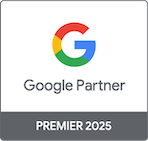Black Friday scams change user behaviour and increase automated activity, which can flood your Google Ads, Meta Ads and Microsoft Ads campaigns with fake clicks, low intent traffic and automated visits. This means you pay for more sessions that never convert, your reported conversion rates fall and you risk scaling campaigns that look successful in the dashboards but are actually driven by non-human or unprofitable traffic.
Black Friday Scams Surge: What PPC Advertisers Need to Watch Out For
Abisola Tanzako | Nov 24, 2025

Black Friday is not only peak season for shoppers. It is also peak season for scammers who exploit urgency, deep discounts and heavy ad competition. While most coverage focuses on consumers being tricked, we are seeing a parallel risk for PPC advertisers: the same tactics used to scam shoppers are driving fake clicks, poor quality traffic and distorted performance data in Google Ads, Meta Ads and Microsoft Ads.
Table of Contents
From spoofed brand sites to too-good-to-be-true offers, the scams that hit consumers also create waves of invalid traffic, bots and motivated-but-never-buying users that erode your return on ad spend. As ClickPatrol, we track these patterns every year and Black Friday continues to be one of the highest-risk periods for click fraud and budget waste.
Four Black Friday Scam Patterns That Distort PPC Traffic
The consumer scams highlighted by security experts map directly onto traffic threats for performance marketers. During Black Friday and Cyber Monday, we typically see four recurring patterns that matter for PPC teams.
1. Fake retail websites that hijack branded search
Fraudsters register domains that closely resemble well-known retailers, then promote them through search and social. On the consumer side, people hand over card details and never receive their order. On the advertiser side, these setups create several PPC-specific issues:
- Competitors or bad actors bidding on your branded keywords to resell or redirect traffic.
- Click farms repeatedly testing and scraping product pages, causing inflated click volume on shopping and search campaigns.
- Confused users clicking multiple similar-looking ads before realizing which is the real brand, producing repeated non-converting clicks.
This type of activity can make branded CPCs spike and damage conversion rates at exactly the moment you are raising budgets to capture legitimate demand.
2. Phishing links spread through ads and social posts
Consumer guidance around Black Friday increasingly warns about phishing links that pretend to offer delivery updates, exclusive coupons or order confirmations. Many of these scams circulate via sponsored posts or promoted search results.
For PPC advertisers, the presence of these malicious links in paid environments triggers side effects:
- Lower trust in ad formats, which can reduce genuine users’ willingness to click your ads.
- Security tools and browser protections that aggressively scan and auto-test URLs, generating automated, non-human clicks.
- Higher bounce rates and abnormal behavior patterns that make it harder to distinguish real user intent from automated probes.
Without strong detection, those automated checks and scripted visits are logged as paid clicks, skewing your reports and wasting budget.
3. Unrealistic deals that pull in low-intent and fake users
Black Friday coverage often highlights misleading promotions, bait-and-switch discounts or disappearing coupon codes. Even when these offers are not outright criminal, they set an expectation of extreme bargains that drives erratic behavior in the auction.
We regularly see:
- Shoppers frantically clicking multiple ads and listings to chase the lowest price, often returning via paid clicks several times without purchasing.
- Affiliate and arbitrage sites using aggressive ad tactics to funnel users through multiple paid touchpoints before redirecting them elsewhere.
- Click bots programmed to simulate shopping interest and harvest promo codes or loyalty bonuses, triggering many non-valuable clicks.
The result is a surge in sessions that look like engaged traffic on the surface but never convert. If you simply increase bids for Black Friday without filtering this noise, your cost per acquisition can climb sharply.
4. Social media gift and giveaway scams
Another recurring scam warns consumers to be cautious of fake giveaways, contest posts and “free gift” offers that collect personal information. These often run alongside legitimate brand campaigns on platforms like Meta.
From a PPC and traffic quality perspective, these scams can:
- Attract low-quality audiences trained to click anything that looks like a prize or freebie.
- Encourage repeated clicks from the same users or groups in an attempt to “increase their chances” of winning.
- Attract botnets designed to fill in forms and comment on posts to make scams look more credible.
All of this pollutes lookalike and engagement-based audiences, meaning your remarketing and prospecting campaigns can start optimizing toward users who never become profitable customers.
Why Black Friday Scams Matter for PPC Budgets
Consumer fraud around Black Friday is not just a cybersecurity problem. It changes how people behave when they see ads, how often they click and how much automated traffic hits landing pages. For performance marketers, the ripple effects are clear:
- Spending more on clicks from bots, fake shoppers and confused users.
- Underestimating true conversion rates because denominators are bloated with invalid sessions.
- Misallocating budget toward campaigns and keywords that appear to scale but are mostly fed by non-human or unprofitable traffic.
Industry estimates regularly highlight sharp increases in online scams around major shopping peaks. That is exactly when brands simultaneously raise PPC budgets and relax bid limits. The combination of heightened consumer risk and aggressive media investment is a perfect environment for click fraud.
Traffic Red Flags To Watch In Your Black Friday PPC Data
Based on what we see across Google Ads, Meta Ads and Microsoft Ads during Black Friday, there are common signals that suggest scam-driven or fraudulent traffic is hitting your campaigns:
- Unusual spikes in clicks on branded keywords without a corresponding rise in sales or leads.
- High concentrations of clicks from a small set of IPs, devices or locations that do not match your usual customer base.
- Very short session durations combined with repeated ad clicks from the same user or network.
- Landing page visits with no scroll, no interaction and instant bounce, despite strong intent keywords.
- Sudden swings in click-through rate on ads mentioning discounts or promo codes, with little change in downstream performance.
Platforms will filter some invalid traffic, but they are not tuned to your specific margins, customer quality or tolerance for risk. You need your own, more granular protection to keep promotion periods profitable.
How ClickPatrol Helps Protect Black Friday Ad Spend
We built ClickPatrol to deal with exactly these scenarios, where traffic quality changes quickly and budgets expand. Our systems analyze each click using many behavioral and technical signals, such as repeat patterns, device fingerprinting, IP clusters and engagement on site.
During intense sales periods like Black Friday, this allows us to:
- Identify fake, bot-driven and abusive clicks in real time before they consume too much budget.
- Block repeated or suspicious users from seeing and clicking your Google Ads, Meta Ads and Microsoft Ads again.
- Feed you cleaner performance data so you can scale winning campaigns based on real customers, not scammers or scripts.
With better traffic quality, your reported metrics align more closely with genuine demand. That helps you make faster decisions about which campaigns to push, which audiences to pause and where to cut wasted spend in the middle of a short, intense sales window.
For advertisers preparing for Black Friday, Cyber Monday and the wider holiday season, this is a timely moment to review traffic protection. If you want to see how much of your spend is currently exposed to invalid clicks, you can start a free trial of ClickPatrol or speak with our team to learn more about how we secure PPC budgets during high-risk shopping events.
Frequently Asked Questions
-
How do Black Friday scams affect my PPC campaigns as an advertiser?
-
What specific red flags in my data suggest scam-driven or fraudulent Black Friday traffic?
Key warning signs include sudden spikes in clicks on branded terms without matching sales, many clicks from a narrow set of IPs or locations, repeated clicks from the same users, very short sessions with no interaction and sharp swings in click-through rate on discount-focused ads without corresponding improvements in conversions or revenue.
-
Why are Black Friday and Cyber Monday higher risk for click fraud and invalid traffic?
Black Friday and Cyber Monday are higher risk because scammers target shoppers with fake deals, phishing links and cloned sites at the same time that brands drastically increase their PPC budgets. The rush to capture demand results in more aggressive bidding, more price-sensitive users and more automated systems probing pages, all of which create ideal conditions for click fraud and inflated non-converting traffic.
-
How can ClickPatrol help protect my Black Friday ad budget?
ClickPatrol monitors every paid click across your campaigns, checking for suspicious patterns like repeated clicks, unusual device or IP clusters and non-human behaviour on landing pages. When we detect fake, bot or abusive activity, we block those sources from clicking again and remove them from your future targeting. This keeps more of your Black Friday budget focused on real shoppers and gives you cleaner data for optimisation.
-
What should I change in my Black Friday PPC strategy to reduce the impact of scams?
You should review and tighten location and device targeting, cap bids on high-risk terms that attract deal hunters, monitor branded search closely, and track sudden changes in click and conversion patterns daily. Combining these steps with dedicated traffic protection like ClickPatrol, which automatically filters and blocks invalid clicks, will help you keep performance stable and ensure that budget increases during Black Friday drive real customers rather than scammers or automated scripts.






